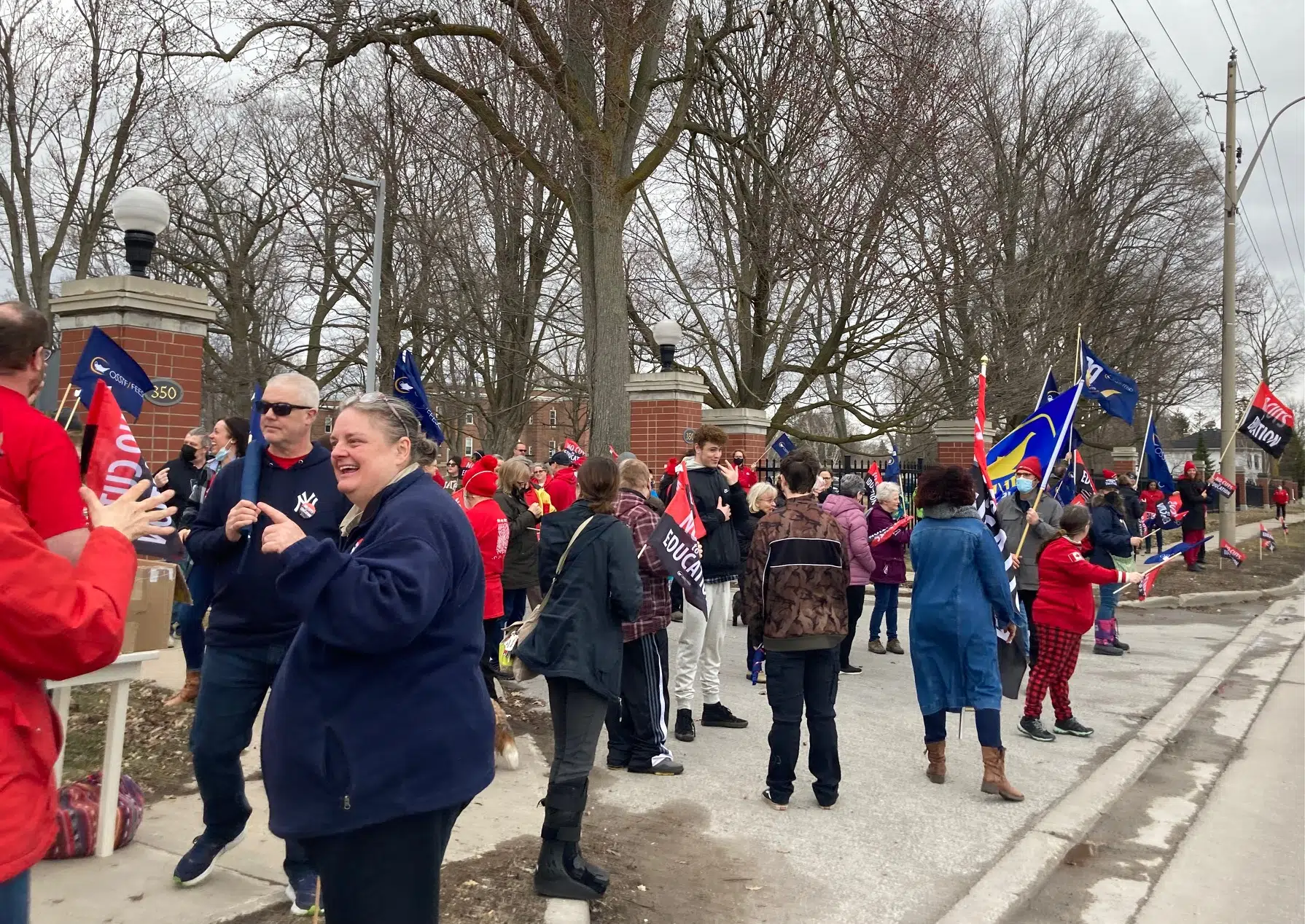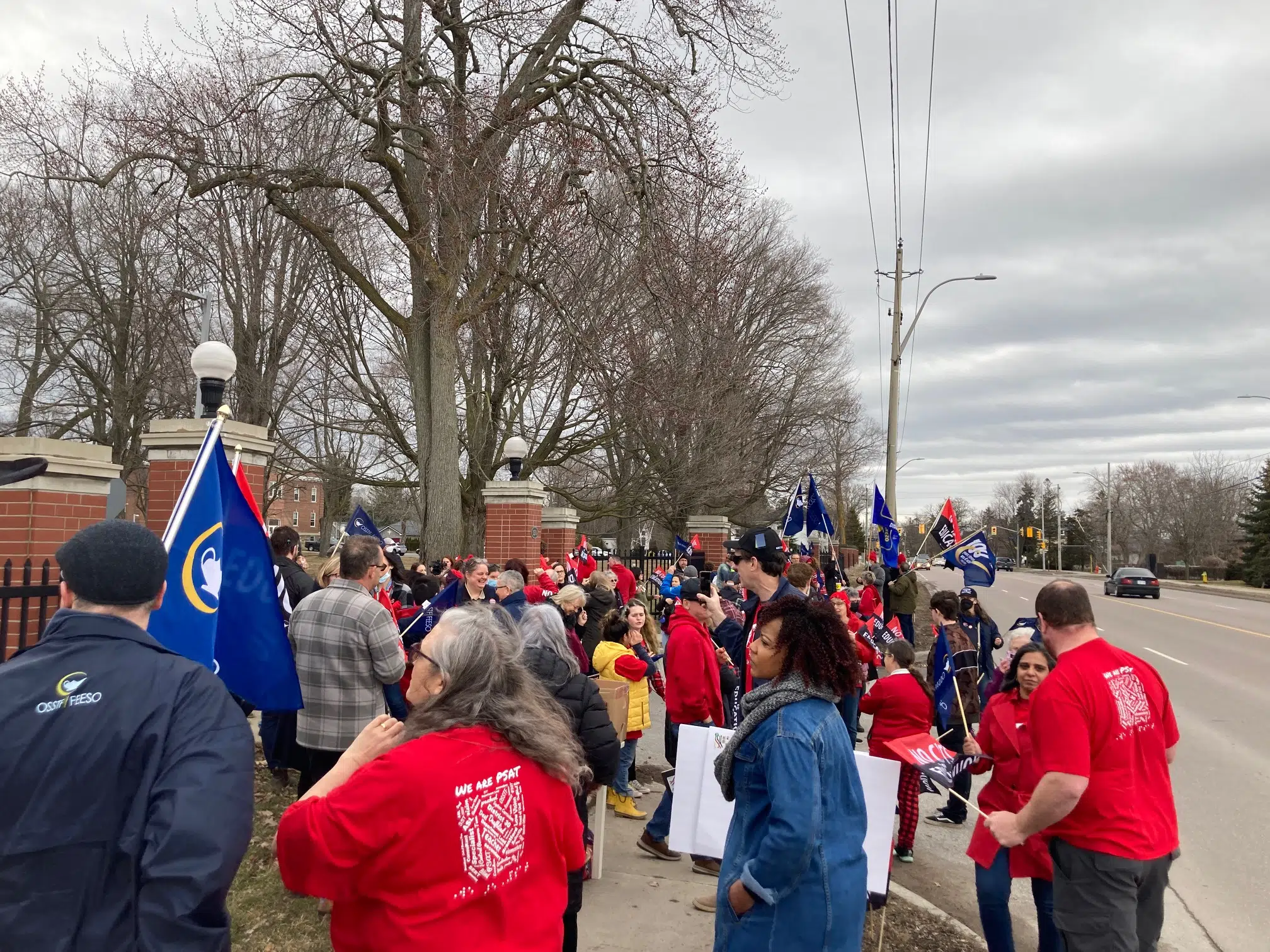“Why is that teachers have to come begging to get the supports we need to provide the programs and services. Why is it we need to point out that they are actively preventing our members from finding kids in the mainstream or finding kids in communities who would benefit from these schools? Why is it the government continues to look at these schools through a deficit lens and not an asset lens?
Sykes says classes at the province’s four schools for the deaf and blind are oversized and understaffed and infrastructure is falling apart.
For instance, he notes the pool at Sir James Whitney was only recently fixed after being out of commission for three years.
“To some people it’s just a pool. But, what you don’t appreciate necessarily is that this a pool that deaf kids swim at, it’s their community pool. And since the government has, we allege, has taken steps to affect our enrolment negatively and we’ve declined from 63 new students in 2019 to just 23 new students this year, that also has a tremendous impact on the programming that we can offer. It also an impact on the social aspects of the school life.”
Sykes also reported recent issues with things like heat not working properly at some of the schools and classes not having enough supervision.
Sarah Colbeck, who is deaf herself and has five deaf children, two of whom currently attend Sir James Whitney, agrees education for deaf and blind students is not being made a priority and is not being promoted.
She spoke to Quinte News through an interpreter.
“When I went to this school we had at least 200 students. Now we have 47 students. We can have more students but many parents don’t even know we exist, don’t even know that it’s an option for their students. We’re not allowed to promote our school and the services and programs that are here.”
Colbeck adds these schools play a vital role.
“Deaf children are placed into mainstream programs and many of them do not succeed because of language deprivation. The interpreters may not be fluent. They may not have access to the appropriate courses that they would like to take. They need to have other assessments that aren’t being done.”

Sarah Colbeck with three of her children, two of whom currently attend Sir James Whitney School for the Deaf in Belleville. (Photo: Alana Cameron/Quinte News)
Colbeck says they do not want the school to close.
“We want to preserve it. It’s a part of our history, a part of our culture. My parents went here. They graduated from here. I went here. My children have gone here. I value this community and I value our deaf schools.”
A statement from a representative for the Ministry of Education says the province is firmly committed to supporting and promoting learning at the schools.
Grace Lee says support to the schools has increased since 2020 but Sykes says that increase is really less than one per cent.
Sykes claims they will be sharing what he calls some alarming details about the state of the schools if the province doesn’t soon step up with more support.
Thursday’s rally in Belleville was the second of four.
A rally was held at the Ernest C. Drury School for the Deaf in Milton last week.
Over the next two weeks there will be demonstrations at Robarts School for the Deaf in London and W. Ross Macdonald School for the Blind in Brantford.

Parents, students and teachers rally outside Sir James Whitney School in Belleville demanding the province provide more funding and resources, March 31, 2022. (Photo: Alana Cameron/Quinte News)






